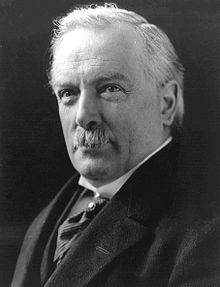
The Liberal welfare reforms (1906–1914) were a series of acts of social legislation passed by the Liberal Party after the 1906 general election. They represent the emergence of the modern welfare state in the United Kingdom. The reforms demonstrate the split that had emerged within liberalism, between emerging social liberalism and classical liberalism, and a change in direction for the Liberal Party from laissez-faire traditional liberalism to a party advocating a larger, more active government protecting the welfare of its citizens.
The historian G. R. Searle argued that the reforms had multiple causes, including "the need to fend off the challenge of Labour; pure humanitarianism; the search for electoral popularity; considerations of National Efficiency; and a commitment to a modernised version of welfare capitalism."[1] By implementing the reforms outside the English Poor Laws, the stigma attached to claiming relief was also removed.
During the 1906 general election campaign, neither of the two major parties made poverty an important election issue and no promises were made to introduce welfare reforms. Despite this, the Liberals led by Henry Campbell-Bannerman and later H. H. Asquith won a landslide victory and began introducing wide-ranging reforms as soon as they took office.[2]
- ^ G.R. Searle (2004). A New England?: Peace and War, 1886–1918. Clarendon Press. p. 369. ISBN 9780198207146.
- ^ "The National Archives Learning Curve | Britain 1906–18 | Liberal Welfare Reforms 1906–11: Gallery". Learningcurve.gov.uk. Archived from the original on 6 May 2009. Retrieved 24 January 2010.
© MMXXIII Rich X Search. We shall prevail. All rights reserved. Rich X Search
